This Week in Freethought History (June 16-22)
Here’s your week in Freethought History. This is more than just a calendar of events or mini-biographies – it’s a reminder that, no matter how isolated and alone we may feel at times, we as freethinkers are neither unique nor alone in the world.
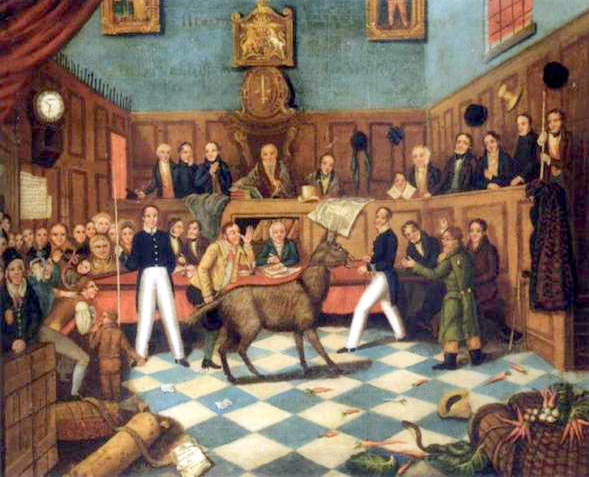 Last Sunday, June 16, but in 1822, the Royal Society for the Prevention of Cruelty to Animals was founded in a London pub as the SPCA. It was the first society in history set up to end animal cruelty, so you may wonder why it took the religion of Gentle Jesus and St. Francis of Assisi so long to condemn the ill-treatment of the lower branches on the evolutionary tree. It all started on the sixth day of creation: “And God said, Let us make man in our image, after our likeness: and let them have dominion over the fish of the sea, and over the fowl of the air, and over the cattle, and over all the earth, and over every creeping thing that creepeth upon the earth. …And God blessed them, and God said unto them, Be fruitful, and multiply, and replenish the earth, and subdue it: and have dominion over the fish of the sea, and over the fowl of the air, and over every living thing that moveth upon the earth.” (Genesis 1:26, 28)
Last Sunday, June 16, but in 1822, the Royal Society for the Prevention of Cruelty to Animals was founded in a London pub as the SPCA. It was the first society in history set up to end animal cruelty, so you may wonder why it took the religion of Gentle Jesus and St. Francis of Assisi so long to condemn the ill-treatment of the lower branches on the evolutionary tree. It all started on the sixth day of creation: “And God said, Let us make man in our image, after our likeness: and let them have dominion over the fish of the sea, and over the fowl of the air, and over the cattle, and over all the earth, and over every creeping thing that creepeth upon the earth. …And God blessed them, and God said unto them, Be fruitful, and multiply, and replenish the earth, and subdue it: and have dominion over the fish of the sea, and over the fowl of the air, and over every living thing that moveth upon the earth.” (Genesis 1:26, 28)
We’re a little behind on the replenishing command, but the “dominion over” part? Nailed it! It never occurred to Christians (or Muslims, for that matter, in spite of verse 6:38) that animals were anything but the personal playthings of people: after all, God created the creatures of the earth, air and water for our use, not for our protection. But bear-baiting, cock-fighting, the mistreatment of draft animals and brutality toward stray cats and dogs, were no laughing matter to Richard Martin (1754-1834), an Irish MP who got “Martin’s Act” against animal cruelty passed in Parliament. He was nicknamed “Humanity Dick” by King George IV. Two years later, on this date in 1824, at Old Slaughter’s Coffee House, Martin oversaw the founding of the Society for the Prevention of Cruelty to Animals, which put teeth into Martin’s Act. His efforts so impressed Queen Victoria that, in 1840, the SPCA was renamed under Martin’s successors the RSPCA, as they have been known ever since.
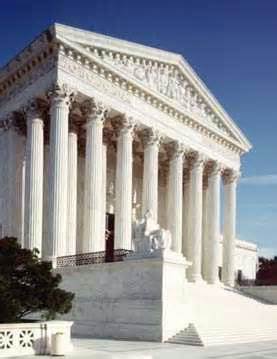 Last Monday, June 17, but in 1963, the U.S. Supreme Court decided Sherbert v. Verner (374 U.S. 398 (1963)), creating the “Sherbert Test,” and saying that adherents of minority faiths cannot be disadvantaged by government without a compelling interest in limiting free exercise of religion. When a textile mill worker was asked to work on Saturday, she cited her religious conviction as a Seventh-day Adventist when she declined. For this she was fired and could not find other work. She applied for unemployment compensation with South Carolina and was denied because her reason for refusing to accept “suitable” work was not compelling. She sued and lost; the decision was affirmed by the South Carolina Supreme Court. But the U.S. Supreme Court, in a 7-2 decision, reversed South Carolina’s decision as an unconstitutional burden on the free exercise of Sherbert’s religion. Chief Justice Brennan wrote for the majority, “to condition the availability of benefits upon this appellant's willingness to violate a cardinal principle of her religious faith effectively penalizes the free exercise of her constitutional liberties.”
Last Monday, June 17, but in 1963, the U.S. Supreme Court decided Sherbert v. Verner (374 U.S. 398 (1963)), creating the “Sherbert Test,” and saying that adherents of minority faiths cannot be disadvantaged by government without a compelling interest in limiting free exercise of religion. When a textile mill worker was asked to work on Saturday, she cited her religious conviction as a Seventh-day Adventist when she declined. For this she was fired and could not find other work. She applied for unemployment compensation with South Carolina and was denied because her reason for refusing to accept “suitable” work was not compelling. She sued and lost; the decision was affirmed by the South Carolina Supreme Court. But the U.S. Supreme Court, in a 7-2 decision, reversed South Carolina’s decision as an unconstitutional burden on the free exercise of Sherbert’s religion. Chief Justice Brennan wrote for the majority, “to condition the availability of benefits upon this appellant's willingness to violate a cardinal principle of her religious faith effectively penalizes the free exercise of her constitutional liberties.”
In order to limit free exercise, the court said, the government must determine that (1) the person has a claim involving a sincere religious belief, and (2) the government action is a substantial burden on the person’s ability to act on that belief. If these two elements are established, then the government must prove (3) that it is acting in furtherance of a "compelling state interest," and (4) that it has pursued that interest in the manner least restrictive, or least burdensome, to religion. The “Sherbert Test” controlled the court’s adjudication of religious liberty claims from 1963-1990, when it was replaced by the Lemon Test. Sherbert was revised and updated by Congress through incorporation into the Religious Freedom Restoration Act of 1993 – which, unlike the even-handedness of Sherbert, was an attempt to inject more religion into American life. However, Sherbert left unresolved the basic question of what makes religion so valuable to society that its practitioners and practices get special rights.
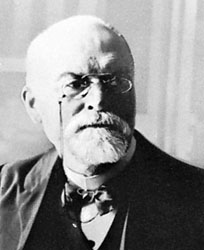 Last Tuesday, June 18, but in 1845, French physician Alphonse Laveran was born. He worked as a military doctor from 1870-1896. After performing autopsies on hundreds of soldiers killed by malaria, Laveran was the first to show that protozoa were the cause of the disease. He became a professor at the Pasteur Institute from 1896 until his death in 1922, establishing a tropical medicine research facility there and becoming a leading authority. Laveran was awarded the 1907 Nobel Prize for Physiology or Medicine for this work on protozoan diseases. Alphonse Laveran was an atheist. When he was told his contemporary Thomas Edison (1847-1931) had become interested in Spiritualism, Laveran said he “did not believe a word of the report” and that he himself “did not believe in spirits” (Le Gaulois, 5 Oct 1920).
Last Tuesday, June 18, but in 1845, French physician Alphonse Laveran was born. He worked as a military doctor from 1870-1896. After performing autopsies on hundreds of soldiers killed by malaria, Laveran was the first to show that protozoa were the cause of the disease. He became a professor at the Pasteur Institute from 1896 until his death in 1922, establishing a tropical medicine research facility there and becoming a leading authority. Laveran was awarded the 1907 Nobel Prize for Physiology or Medicine for this work on protozoan diseases. Alphonse Laveran was an atheist. When he was told his contemporary Thomas Edison (1847-1931) had become interested in Spiritualism, Laveran said he “did not believe a word of the report” and that he himself “did not believe in spirits” (Le Gaulois, 5 Oct 1920).
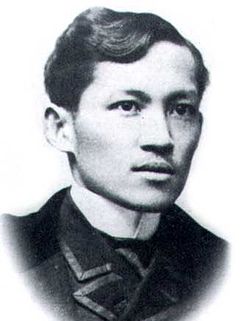 Last Wednesday, June 19, but in 1861, Filipino nationalist and reformist José Rizal was born. He studied medicine and liberal arts at the University of Madrid. From there he studied at universities in Paris, Heidelberg, Leipzig and Berlin. He began writing novels and returned to the Philippines to practice medicine. At the time, Spain ruled the Philippines. Educational works in Tagalog, the Filipino language, were strictly suppressed in favor of Spanish, so Rizal’s book on the Tagalog language was a bold publication in 1889. Rizal showed, in such works as Noli Me Tangere (literally, Don't Touch Me, 1887), and El Filibusterismo (Subversion, 1891) not only the oppression of Filipinos, but the corruption of Spanish priests and monks – who exacted heavy taxes, stole ancestral lands (including Rizal’s own), and sexually violated the women in their parishes. The Spanish government was not pleased to be thus criticized; the churches were outraged at their exposure. Although Rizal believed in peaceful reform – as well as freedom of speech, freedom of the press, and the right to a fair trial – he was banished several times for his reform efforts. And although he advocated reform of Spanish rule rather than revolution, while on his way to aid Cuba during a yellow fever epidemic, he was arrested for sedition, and killed by firing squad on 30 December 1896. Rizal died an anti-clerical Catholic. The Spaniards and the priests cheered his execution, but his death sparked the Philippine Revolution that they had hoped to crush – part of it led by his widow. José Rizal was declared a national hero.
Last Wednesday, June 19, but in 1861, Filipino nationalist and reformist José Rizal was born. He studied medicine and liberal arts at the University of Madrid. From there he studied at universities in Paris, Heidelberg, Leipzig and Berlin. He began writing novels and returned to the Philippines to practice medicine. At the time, Spain ruled the Philippines. Educational works in Tagalog, the Filipino language, were strictly suppressed in favor of Spanish, so Rizal’s book on the Tagalog language was a bold publication in 1889. Rizal showed, in such works as Noli Me Tangere (literally, Don't Touch Me, 1887), and El Filibusterismo (Subversion, 1891) not only the oppression of Filipinos, but the corruption of Spanish priests and monks – who exacted heavy taxes, stole ancestral lands (including Rizal’s own), and sexually violated the women in their parishes. The Spanish government was not pleased to be thus criticized; the churches were outraged at their exposure. Although Rizal believed in peaceful reform – as well as freedom of speech, freedom of the press, and the right to a fair trial – he was banished several times for his reform efforts. And although he advocated reform of Spanish rule rather than revolution, while on his way to aid Cuba during a yellow fever epidemic, he was arrested for sedition, and killed by firing squad on 30 December 1896. Rizal died an anti-clerical Catholic. The Spaniards and the priests cheered his execution, but his death sparked the Philippine Revolution that they had hoped to crush – part of it led by his widow. José Rizal was declared a national hero.
 Also last Wednesday, June 19, but in 1947, British-Indian novelist and essayist Salman Rushdie was born. Rushdie was born into a Muslim family but on 14 February 1989 his book The Satanic Verses earned him a fatwa or decision from Iran’s Ayatollah Khomeini, who proclaimed the book to be an insult to the Islamic religion, and rewarding any Muslim for killing Rushdie. In a 6 February 1990 lecture, Rushdie said of the fatwa, “The idea of the sacred is quite simply one of the most conservative notions in any culture, because it seeks to turn other ideas – uncertainty, progress, change – into crimes.” On 25 September 1998, the Iranian government finally ended the fatwa and Rushdie became more public – even appearing as himself in the 2001 film Bridget Jones's Diary. “God, Satan, Paradise, and Hell all vanished one day in my fifteenth year, when I quite abruptly lost my faith,” he wrote in his 1985 essay, In God We Trust, “and afterwards, to prove my new-found atheism, I bought myself a rather tasteless ham sandwich, and so partook for the first time of the forbidden flesh of the swine. No thunderbolt arrived to strike me down. ... From that day to this I have thought of myself as a wholly secular person.” Salman Rushdie lately describes himself as a “secular Muslim.”
Also last Wednesday, June 19, but in 1947, British-Indian novelist and essayist Salman Rushdie was born. Rushdie was born into a Muslim family but on 14 February 1989 his book The Satanic Verses earned him a fatwa or decision from Iran’s Ayatollah Khomeini, who proclaimed the book to be an insult to the Islamic religion, and rewarding any Muslim for killing Rushdie. In a 6 February 1990 lecture, Rushdie said of the fatwa, “The idea of the sacred is quite simply one of the most conservative notions in any culture, because it seeks to turn other ideas – uncertainty, progress, change – into crimes.” On 25 September 1998, the Iranian government finally ended the fatwa and Rushdie became more public – even appearing as himself in the 2001 film Bridget Jones's Diary. “God, Satan, Paradise, and Hell all vanished one day in my fifteenth year, when I quite abruptly lost my faith,” he wrote in his 1985 essay, In God We Trust, “and afterwards, to prove my new-found atheism, I bought myself a rather tasteless ham sandwich, and so partook for the first time of the forbidden flesh of the swine. No thunderbolt arrived to strike me down. ... From that day to this I have thought of myself as a wholly secular person.” Salman Rushdie lately describes himself as a “secular Muslim.”
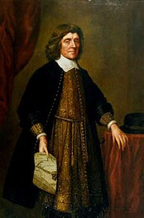 Last Thursday, June 20, but in 1632, Cecilius Calvert, the second Lord Baltimore, was issued a charter by Charles I of England (1600-1649), entitling him to create a Catholic colony in the New World that became known as Maryland.. This charter was originally intended for George Calvert, the first Lord Baltimore and father of Cecilius, but the father died before Charles could sign the charter and the property passed to his heir. Much has been made of the story of how the Catholic settlers of Maryland pioneered religious toleration in the New World. The Maryland charter was granted during the Thirty Years War between Catholic and Protestant Europe, but intra-religious tensions carried over to the colonies. The Maryland General Assembly, under Lord Baltimore, issued the Act of Toleration on 21 April 1649. The Act provided that, “no person in this province professing to believe in Jesus Christ shall be in any ways troubled, molested, or discountenanced for his or her religion.” [italics added] This is touted as the first statute of religious tolerance in New World law, but thirteen years earlier Roger Williams in Rhode Island had promoted a religious toleration that, unlike that of the Maryland Act, did not exclude Jews, Deists and freethinkers. In fact, Maryland’s Act of Toleration was passed by the ruling Catholic elite to protect themselves from the Protestant majority. And the irony is that the colony that was established specifically as a haven for persecuted Catholics, by tolerating all Christian sects, actually attracted more Protestants!
Last Thursday, June 20, but in 1632, Cecilius Calvert, the second Lord Baltimore, was issued a charter by Charles I of England (1600-1649), entitling him to create a Catholic colony in the New World that became known as Maryland.. This charter was originally intended for George Calvert, the first Lord Baltimore and father of Cecilius, but the father died before Charles could sign the charter and the property passed to his heir. Much has been made of the story of how the Catholic settlers of Maryland pioneered religious toleration in the New World. The Maryland charter was granted during the Thirty Years War between Catholic and Protestant Europe, but intra-religious tensions carried over to the colonies. The Maryland General Assembly, under Lord Baltimore, issued the Act of Toleration on 21 April 1649. The Act provided that, “no person in this province professing to believe in Jesus Christ shall be in any ways troubled, molested, or discountenanced for his or her religion.” [italics added] This is touted as the first statute of religious tolerance in New World law, but thirteen years earlier Roger Williams in Rhode Island had promoted a religious toleration that, unlike that of the Maryland Act, did not exclude Jews, Deists and freethinkers. In fact, Maryland’s Act of Toleration was passed by the ruling Catholic elite to protect themselves from the Protestant majority. And the irony is that the colony that was established specifically as a haven for persecuted Catholics, by tolerating all Christian sects, actually attracted more Protestants!
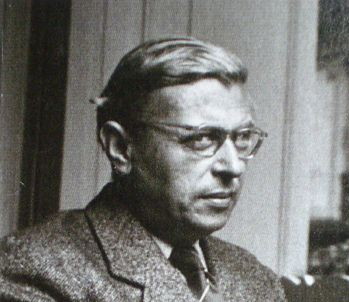 Yesterday, June 21, but in 1905, French existentialist philosopher and writer Jean-Paul Sartre was born. He is known for his philosophy of Existentialism: that life is meaningless and that people must fashion their own purpose out of the materials at hand; that God or Nature or whatever power may exist above mankind doesn't enforce any moral code — that ideas of right and wrong, good and evil, have no cosmic meaning; and that “free will” is a curse and a chain, not a blessing and a freedom. As Sartre said, “The existentialist ... finds it extremely embarrassing that God does not exist, for there disappears with him all possibilities of finding values in an intelligible heaven. ... Existentialism isn’t so atheistic that it wears itself out showing that God doesn’t exist. Rather, it declares that even if God did exist, that would change nothing. ... we think the problem of his existence is not the issue.” Distinguishing himself as a novelist and playwright, as well as a philosopher and teacher, Sartre wrote such works as Nausea (1938), Being and Nothingness (1943) and Existentialism and Humanism (1946). He won the Nobel Prize for literature in 1964. Although never a Communist, Sartre supported the Stalinists until they turned Russia into a reactionary abattoir. He was friends with Albert Camus, until they broke over the policies of the Soviet Union, and had a lifelong love affair with fellow Atheist and Existentialist Simone de Beauvoir. As he said in a Life magazine interview the year he won the Nobel, “We have lost religion but we have gained humanism. The ideal now is to liberate and to help emancipate mankind, with the result that man becomes really an absolute for man.”
Yesterday, June 21, but in 1905, French existentialist philosopher and writer Jean-Paul Sartre was born. He is known for his philosophy of Existentialism: that life is meaningless and that people must fashion their own purpose out of the materials at hand; that God or Nature or whatever power may exist above mankind doesn't enforce any moral code — that ideas of right and wrong, good and evil, have no cosmic meaning; and that “free will” is a curse and a chain, not a blessing and a freedom. As Sartre said, “The existentialist ... finds it extremely embarrassing that God does not exist, for there disappears with him all possibilities of finding values in an intelligible heaven. ... Existentialism isn’t so atheistic that it wears itself out showing that God doesn’t exist. Rather, it declares that even if God did exist, that would change nothing. ... we think the problem of his existence is not the issue.” Distinguishing himself as a novelist and playwright, as well as a philosopher and teacher, Sartre wrote such works as Nausea (1938), Being and Nothingness (1943) and Existentialism and Humanism (1946). He won the Nobel Prize for literature in 1964. Although never a Communist, Sartre supported the Stalinists until they turned Russia into a reactionary abattoir. He was friends with Albert Camus, until they broke over the policies of the Soviet Union, and had a lifelong love affair with fellow Atheist and Existentialist Simone de Beauvoir. As he said in a Life magazine interview the year he won the Nobel, “We have lost religion but we have gained humanism. The ideal now is to liberate and to help emancipate mankind, with the result that man becomes really an absolute for man.”
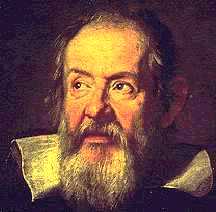 Today, June 22, but in 1633, Galileo recanted before the Inquisition. What seems obvious to us today was, in Galileo's day unscriptural and therefore (by definition) untrue. That the earth was the center of the universe was supported by passages from Joshua, Psalms and Ecclesiastes. Galileo was supported only by his observations and calculations. Cardinal Roberto Bellarmino, met with Galileo when he was summoned to Rome by Pope Paul V in February 1616 to answer charges of heresy for claiming as a fact the theory that Copernicus had framed as only a mathematical hypothesis. Some kind of agreement was reached between the theologian and the theorist. By the time Galileo’s friend, Maffeo Barberini, had been elected Pope Urban VIII and seemed to respect his science work, Galileo had felt it safe to publish his Dialogue on the Two Principal World Systems, again promoting a sun-centered cosmos. But the Thirty Years War (1618-1648) between Catholics and Protestants in Europe was making Catholic doctrine most inflexible. And in his Dialog, Galileo had poked fun at the holders of the earth-centered (Biblical) notion of the cosmos – which happened to include Pope Urban. Summoned to Rome again in 1633, this time Galileo was nearly 70 years old, going blind, and in frail health. It took little to bully him into recanting the sun-centered theory. On his knees he was forced to say:
Today, June 22, but in 1633, Galileo recanted before the Inquisition. What seems obvious to us today was, in Galileo's day unscriptural and therefore (by definition) untrue. That the earth was the center of the universe was supported by passages from Joshua, Psalms and Ecclesiastes. Galileo was supported only by his observations and calculations. Cardinal Roberto Bellarmino, met with Galileo when he was summoned to Rome by Pope Paul V in February 1616 to answer charges of heresy for claiming as a fact the theory that Copernicus had framed as only a mathematical hypothesis. Some kind of agreement was reached between the theologian and the theorist. By the time Galileo’s friend, Maffeo Barberini, had been elected Pope Urban VIII and seemed to respect his science work, Galileo had felt it safe to publish his Dialogue on the Two Principal World Systems, again promoting a sun-centered cosmos. But the Thirty Years War (1618-1648) between Catholics and Protestants in Europe was making Catholic doctrine most inflexible. And in his Dialog, Galileo had poked fun at the holders of the earth-centered (Biblical) notion of the cosmos – which happened to include Pope Urban. Summoned to Rome again in 1633, this time Galileo was nearly 70 years old, going blind, and in frail health. It took little to bully him into recanting the sun-centered theory. On his knees he was forced to say:
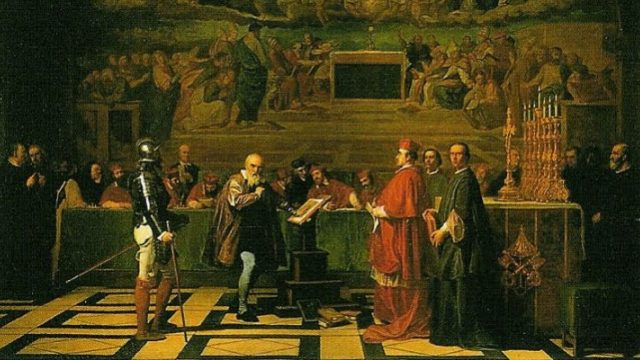
I, Galileo Galilei,... abjure with sincere heart and unfeigned faith, I curse and detest the said errors and heresies. ...
He remained under clerical supervision the rest of his life. It wasn't so much that Galileo sought confrontation with the doctrines of the Church; instead, he had discovered facts which contradicted what he had been taught and refused to allow truth to approach superstition on its knees (an example of this kind of excuse for Galileo’s ill-treatment can be found here). “And yet it does move.”
Other birthdays and events this week—
June 17: The last witch was executed in Switzerland (1782).
June 18: The American Library Association adopted a “Library Bill of Rights” (1948).
June 22: English evolutionary biologist Sir Julian Huxley was born (1887).
June 22: American fashion designer Bill Blass was born (1922).
We can look back, but the Golden Age of Freethought is now. You can find full versions of these pages in Freethought history at the links in my blog, FreethoughtAlmanac.com.

